Looking for a way to stop aphids from destroying your flower and vegetable plants without spraying harsh chemicals?
Aphids cause major damage to vegetable gardens, flower beds, and perennial plants. And in quick fashion. Of the thousands of aphid types, there are well over 200 species that are harmful to plants.
One thing aphids all have in common is that they reproduce quickly. In fact, aphid populations that are left to their own accord can double or triple in just a few days.
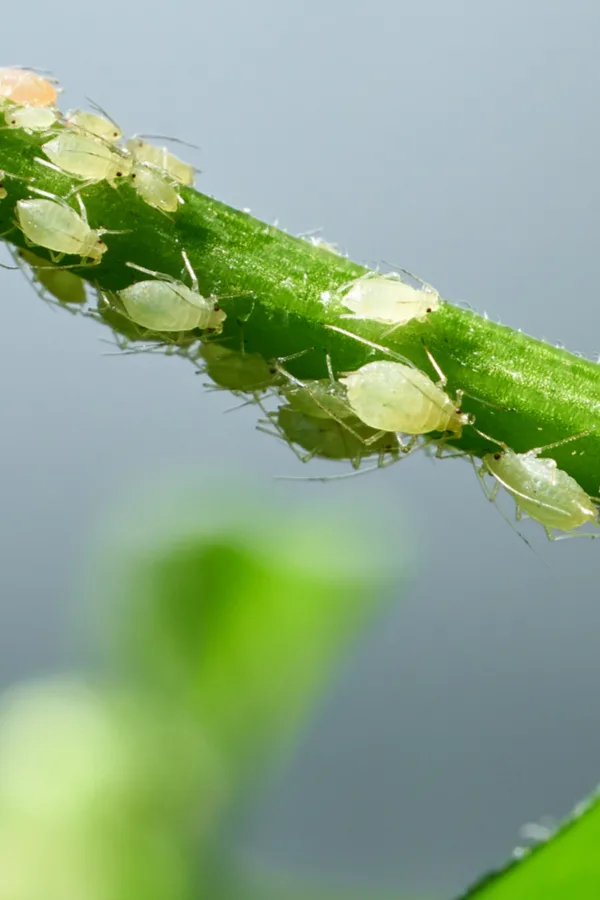
Making it even more difficult, these tiny creatures are nearly invisible to the naked eye. Especially when it comes to the young offspring of adults, called nymphs. Many times, by the time they are found, the damage is already severe.
Aphid Damage – How To Stop Aphids Naturally
Both young and older aphids feed on plants. Although they can attack anywhere, they usually enjoy foraging on the tender new shoots, stems and foliage of plants. It is here where they can easily penetrate the outer skin of plants to feed on the sap.
That sap, of course, carries nutrients throughout the plant. Without it, plants can quickly become frail and lifeless.
Adding to the problem, aphids can carry and spread a whole host of disease. With each and every nibble, they can wreak havoc throughout the landscape.
Luckily, there are a few simple, and effective methods you can use to control aphids naturally.
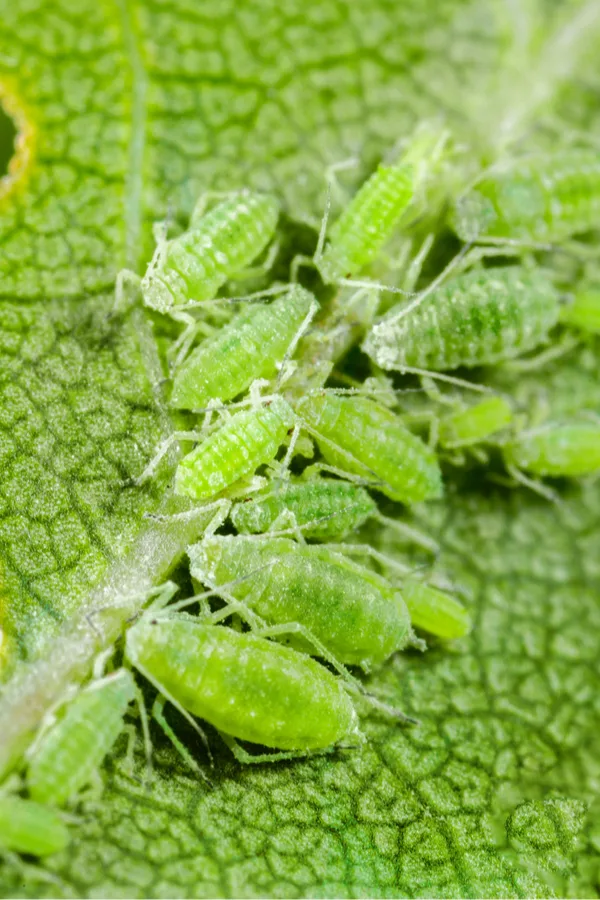
In fact, you might be surprised just how effective natural and organic methods can work to stop aphids. Even better, many of them can be made for little to no cost! Here is a look at 4 organic solutions to keep aphids from damaging your plants.
4 Simple Ways To Stop Aphids Naturally
#1) Water Spray – How To Stop Aphids
One of the fastest and easiest methods to stop aphid damage immediately is to spray down your plants with a powerful stream of water.
Aphids do not have strong bodies or the ability to cling to plants well A simple blast of water can easily dislodge them from plants and stop their damage in quick fashion.
Although it will not kill the aphids directly, a daily spraying can usually control an aphid problem and keep damage to a minimum. When spraying, be sure to hit the underside of plants with water as well.
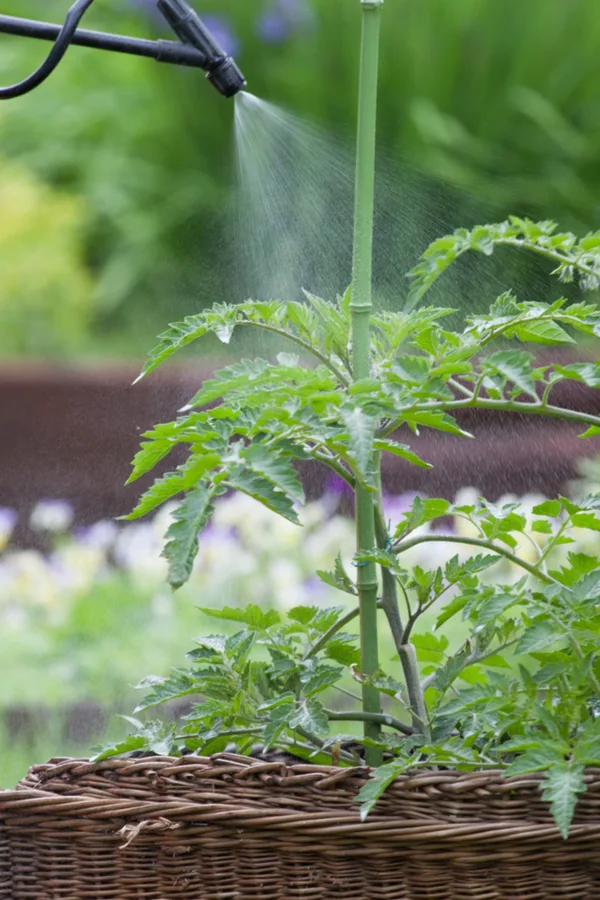
Aphids like to congregate under the cover of foliage to avoid being easy prey to predators. But a quick spray underneath can send them flying from plants quickly.
#2 – Natural Predators – How To Stop Aphids
There are a whole host of beneficial insects and creatures that can help keep aphid populations under control. And by attracting these insects to your flowerbed and garden areas, you can keep aphids in check.
Lady bugs are the most notorious enemy of aphids. They can eat thousands of them in a single year. Lacewings are also prolific controllers of aphid populations.
So how do you attract these helpful insects to your garden? Planting herb such as Dill, Oregano, Yarrow and Coriander is a great start.
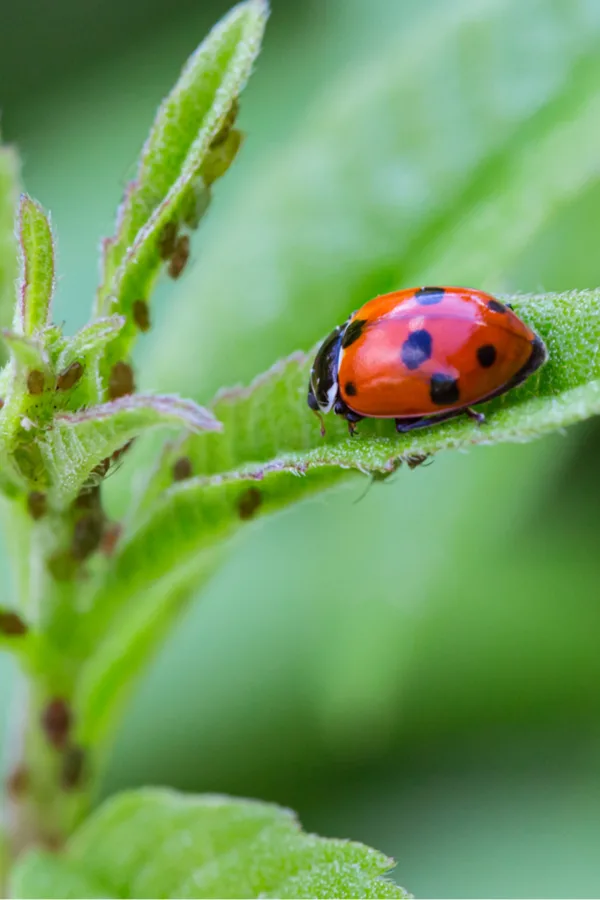
Both ladybugs and lacewings are attracted to these plants. Plants such as dill and coriander are wonderful to plant in small patches in gardens and flowerbeds to add both interest, food, and aphid protection.
In the bird category, chickadees are known to dine on aphids at will. Bird feeders will do a good job of attracting these fun little birds, especially if you fill them with sunflower seeds or peanuts.
#3 – Using The Power Of Companion Plants – How To Stop Aphids
In addition to growing a few crops that attract aphid predators, there are also plants you can grow that repel aphids on their own.
Garlic, onions and chives are all well-known to deter aphids. Dill and Fennel, in addition to attracting beneficial insects to the garden, are also excellent for repelling aphids as well.
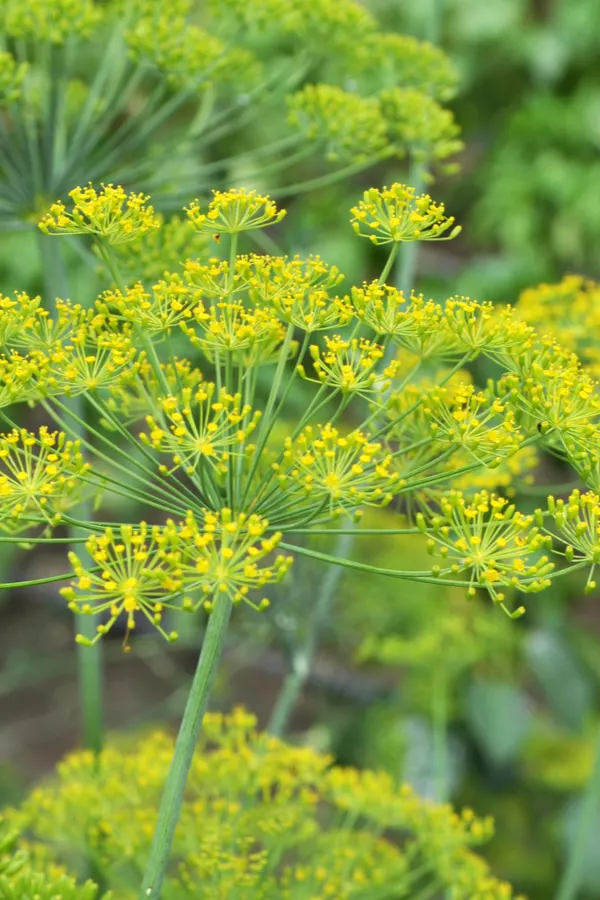
The tiny creatures simply do not like these plants, and tend to move on to forage on to other plants in other locations. One companion plant the jury is still out on are Marigolds.
Although marigolds have many beneficial properties as a companion plant, when it comes to aphids, there are many who think they actually attract more to an area instead of repelling them.
#4) Neem Oil – How To Stop Aphids
And finally, there is neem oil as organic alternative to controlling aphids on plants.
Neem oil has been used for hundreds of years in the battle to control aphids. It is an all-natural extract derived from Neem trees. When mixed with water and applied to plants, it naturally repels aphids.
Coincidentally, it also works well in repelling beetles, leaf miners, ants and cabbage worms as well. To use, mix 1 teaspoon of Neem oil with 1 quart of water. Apply with hand-held pump or bottle sprayer to the foliage of affected plants. Product Link : Neem Oil

One additional benefit to using neem oil – it is also non-toxic to birds, fish, bees, and mammals. But remember, even though it is organic, pesticide sprays of any kind are also non-discriminatory.
That means they will kill many good insects as well. It is exactly why using Neem oil or any other natural insecticide spray should be a last resort for the most serious of infestations.
Here is to stopping aphids naturally in your landscape. For more information on natural pest control, check out our Pests Control Tips Category on the blog.
Follow Our Facebook Page For Great Gardening Tips And Advice! This Is My Garden Facebook Page
This Is My Garden is a garden website created by gardeners, for gardeners. Jim and Mary Competti have been writing gardening, DIY and recipe articles and books and speaking for over 15 years from their 46 acre Ohio farm. They publish three articles every week, 52 weeks a year. Sign up today to follow via email, or follow along!
